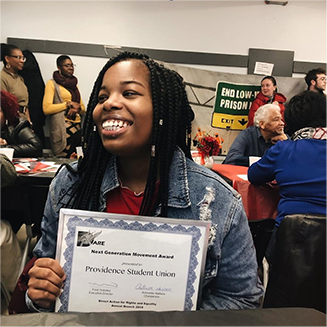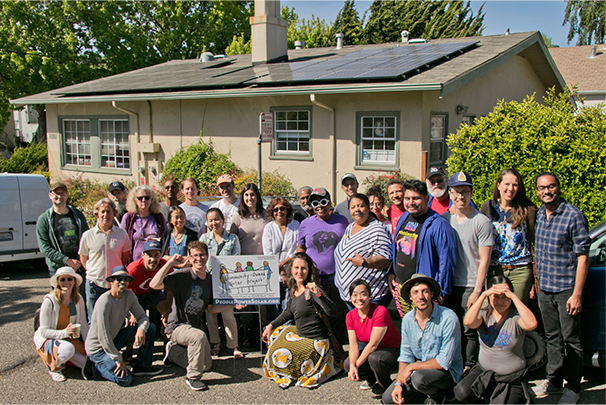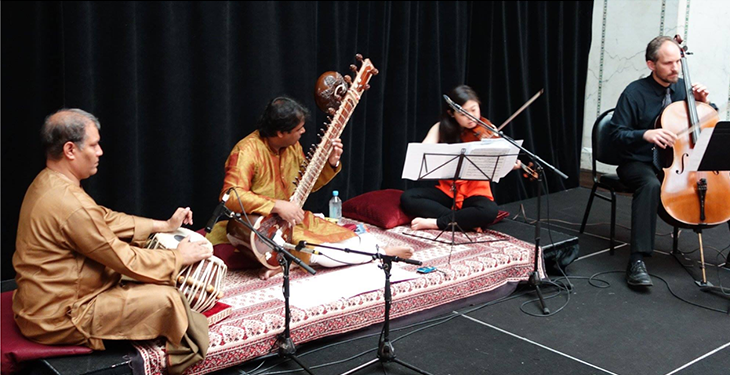Areas of funding
Click the icons below to learn more about our three thematic areas of funding and what qualifies for grants under each.
Providence Student Union - Fall 2020
People Power Solar Cooperative - Spring 2019
Spring 2018
COMMUNITY ORGANIZING: Sparkplug funds work by members of a community for their community -- work that aims to create justice by making systemic change and/or shifting power. Or in other words, we fund projects that are created, run by, and meet the needs of people with shared lived experience who face the same types of oppression, discrimination, violence, or barriers, who live in the same area, or who have a shared vision and aspirations for the future.
For example, We DO fund projects created and led by LGBTQ youth to change policies that affect them, but we DON’T fund programs that provide social services for LGBTQ youth.
Some other examples of community organizing that we have funded in the past include:
+ A farmworker-led campaign against deportations and for access to drivers licenses for undocumented people.
+ Training community members as housing organizers as part of a campaign to build their leadership capacity and win local housing justice.
+ Support to frontline communities in energy democracy organizing.
+ A COVID-19 related mutual aid and advocacy project by and for people experiencing homelessness.
EDUCATION: Sparkplug funds projects to educate or support communities, including but not limited to school-age students, that move beyond traditional classroom instruction. In keeping with our justice-oriented framework, we fund education projects that engage excluded students in new ways, projects that restore knowledge that has been marginalized through racism or colonialism, and projects that rebuild community and collective problem-solving.
We're especially interested in supporting critical and investigative thinking, and projects that address race, gender, and class disparities in education. We do fund community-based education and social justice curriculum development, For example, we have funded the development and sharing of curriculum that explores connections between Palestine and the US/Mexico border region to teach students to think critically about the impact of militarized border zones on youth, families and the environment.
We do not directly fund schools and do not fund programs that have been eliminated by budget cuts. Finally, we do not fund arts projects under this funding area.
Some examples of education projects that we have funded in the past include:
+ A program using digital tools to educate consumers on how they can support farmworkers rights.
+ A youth-led education campaign exposing and opposing militarization in their community.
+ A digital platform to preserve the archives of a local black community.
+ A year-long program bringing together social and environmental justice organizers to train new organizers and develop joint community projects.
MUSIC: Recognizing the critical importance of music in bringing communities together and building collective creativity, Sparkplug supports emerging musicians in developing new work, sharing existing work with a wider community through events or media, bringing together musicians to collaborate on creating or performing pieces, or facilitating new workshops that bring music to oppressed communities. Applicants for music grants will be asked to submit a sample of their music with their Letter of Intent form.
Please note that we do not provide budget replacement funding for music programs in the education system suffering from budget cuts. The best way to understand whether your project may be fundable is to look at our past music grants.
Some examples of music projects that we have funded in the past include:
+ A music and other media production of a multi-ethnic Ottoman world, drawing on the stories and songs of Sephardic women.
+ Commissioned compositions and the production of CDs in selected genres.
+ The development of a musical program, using historical materials, memorializing the Triangle Shirtwaist Factory Fire in 1911.
+ A multi-media, semi-staged performance based on the life and poetry of the celebrated Italian Renaissance poet, Torquato Tasso.



